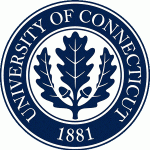 While the department is not able to celebrate with an awards banquet this year, we still are able to recognize the best among undergraduate and graduate students, as well as faculty!
While the department is not able to celebrate with an awards banquet this year, we still are able to recognize the best among undergraduate and graduate students, as well as faculty!
This year’s award recipients are:
Undergraduate Awards
Economics Department General Scholarship
Shuo Han
Samuel Jackson
Tamara Shelley
Grace Smith
Khoa Tran
Yinuo Xiang
Ziyun Zhou
Kathryn A. Cassidy Economics Scholarship
Nidhi Nair
SeSe Nguyen
Rockwood Q. P. Chin Scholarship
Nadine Fernando
Prasad Gosavi
Pin Lyi
Choyang Wang
Louis D. Traurig Scholarship
Adem Aksoy
Allen Cazeau
Jeremy Salyer
Benjamin Scudder
Paul N. Taylor Memorial Prize
Erin McKeehan
Julia & Harold Fenton and Yolanda & Augustine Sineti Scholarship
Shuyi Bian
Charles Triano Scholarship
John Doran
Beatrix Jordan
Dr. Joseph W. McAnneny Jr. Scholarship
Erik Choi
Ryan Durrel
Gregory Elmokian
Kevin Gabree
Prabhas KC
Joshua Waxman
Justin Wu
Albert E. Waugh Scholarship
Annaliesa Wood
Ross Mayer Scholarship
Cole Ensinger
Jordan Leonardi
Graduate Awards
W. Harrison Carter Award
Ruohan Huang
Ziyun Wu
Abraham Ribicoff Graduate Fellowship
Lindsey Buck
Timothy A. and Beverly C. Holt Economics Fellowship
Matthew Brown
Shangyue Jiang
Keuncheol Lee
Kunze Li
Lulin Li
Ghania Shuaib
Sirui Qiu
Zhengxuan Wu
Economics Department General Scholarship
Anastassiya Karaban
Best Third Year Paper Award
Jiaqi Wang
Graduate School Pre-Doctoral Fellowship
Sirui Qiu
Zhengxuan Wu
Heshan Zhang
CLAS Summer Fellowship
Erdal Asker
Matthew Brown
Jingyun Chen
Jinsoon Cho
Zhenhao Gong
Shangyue Jiang
Keuncheol Lee
Lulin Li
Yizhi Zhu
Faculty Awards
Grillo Family Research Award
Delia Furtado
Subhash Ray
Grillo Family Teaching Award
Mike Shor
Congratulations to everyone!
 The Center for Career Development features Professor Natalia Smirnova with their Career Champion Spotlight:
The Center for Career Development features Professor Natalia Smirnova with their Career Champion Spotlight:

 Professor Nishith Prakash has been invited to join the editorial board of PLOS ONE
Professor Nishith Prakash has been invited to join the editorial board of PLOS ONE